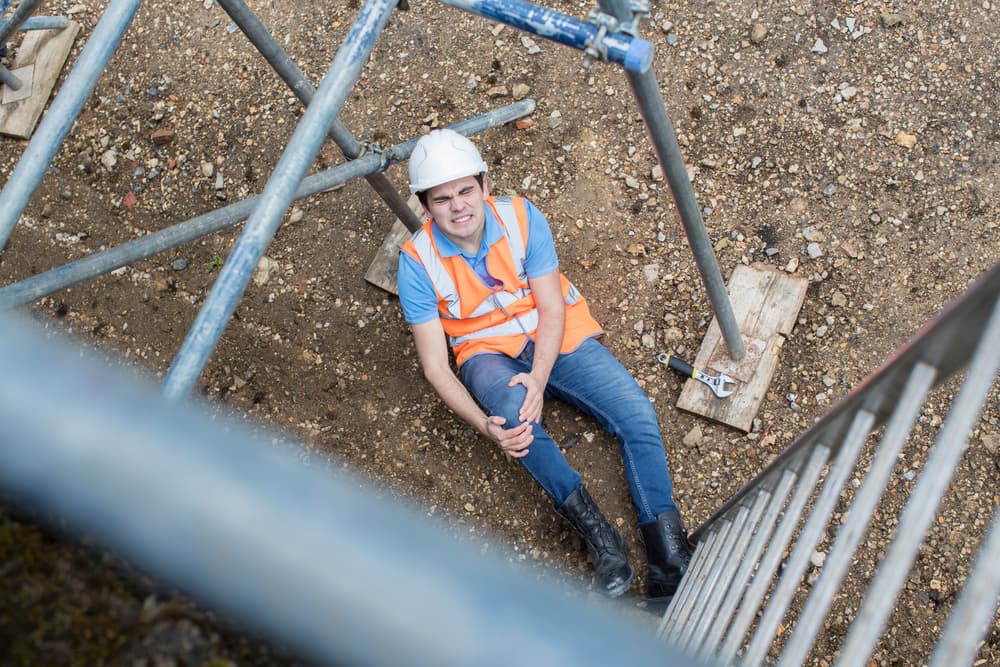How Can I File a Third-Party Claim After a Construction Accident?
How Can I File a Third-Party Claim After a Construction Accident?
Every year, construction sites across the United States witness thousands of injuries, reflecting construction work’s inherently dynamic and complex nature. These sites are bustling, with numerous activities occurring simultaneously.
While many injuries result from the chaotic nature of construction, a significant portion involves workers harmed due to negligent actions, whether by themselves, coworkers, or employers. State workers’ compensation programs typically cover medical expenses and job-related losses for these injuries.
Despite the coverage provided by workers’ compensation, certain construction accidents extend beyond the realm of self, coworker, or employer negligence. Instances arise where a third party, someone not affiliated with the injured party’s workplace, is liable for the injury.
Occasionally, injuries occur because individuals not employed on-site pass through the construction area. In such scenarios, the injured party often pursues a third-party personal injury claim to seek additional compensation beyond what workers’ compensation might offer.
Construction sites present countless potential hazards, and understanding the potential liability of various parties is crucial for those navigating the aftermath of an injury.
When injuries involve third-party liability, it opens avenues for legal recourse that go beyond the scope of traditional workers’ compensation claims. This broader perspective acknowledges the diverse circumstances under which construction injuries occur, offering individuals a means to address the specific circumstances of their case and pursue comprehensive compensation.
Filing a third-party injury claim after a construction accident is best done with the help of an experienced construction accident attorney in the area. Their legal skills and experience can help secure the compensation you deserve for your injuries.
Schedule a Free Initial Consultation
What is a Third-Party Construction Accident Claim?

Construction sites involve various parties, each contributing to the overall safety and conditions of the workplace. In certain instances, accidents can occur due to unsafe practices or hazardous working environments created by these entities.
The range of parties that may be involved in causing harm on a construction site is extensive and may include:
- Property Owners: In certain situations, property owners may be held liable for injuries on their premises. If their negligence contributes to a construction accident, injured parties, including workers or others on the site, may file third-party claims against the property owner.
- Equipment Manufacturers and Suppliers: If a construction accident is due to defective equipment or materials, the manufacturers or suppliers of such items may be held liable. Workers, subcontractors, or others affected by the faulty equipment may file third-party claims against these entities.
- Architects, Engineers, and Surveyors: Design professionals involved in the planning and oversight of construction projects may face liability for injuries resulting from design flaws or inadequate safety measures. Injured parties may file third-party claims against these professionals.
- Project Developers: Project developers are responsible for the initial planning and oversight of a construction project. They may be liable if their planning is negligent or lacks essential safety considerations, resulting in an accident.
- General Contractors and Their Employees: General contractors are often responsible for overall site safety. They can be liable if they or their employees violate safety regulations, leading to an accident. Additionally, if general contractors hire individuals without proper qualifications, with a history of safety violations, or neglect to provide proper training to their employees, resulting in unsafe practices and accidents, they may be held responsible.
- Subcontractors and Their Employees: Subcontractors are responsible for specific tasks within a construction project. Suppose their employees engage in unsafe practices or fail to follow safety guidelines, leading to an accident. In that case, the subcontractor may be held liable. Subcontractors should always supervise their employees adequately. The subcontractor may be liable if poor supervision contributes to unsafe conditions and accidents.
- Materials Suppliers: Suppliers can be liable if the materials they provide are defective or substandard, leading to accidents and injuries. They may also be responsible if they fail to provide proper safety information or guidelines for using their products or misrepresent the quality or safety features, contributing to an accident.
Liability can vary based on the specific circumstances of each case, local regulations, and contractual agreements. Additionally, multiple parties may share liability in some situations.
Determining liability in construction accidents often involves a thorough investigation to identify the parties responsible for the unsafe conditions or actions that led to the injuries.
Typically, anyone whose decisions, actions, or inaction lead to a construction accident, including the parties listed above, can be held liable for the resulting harm. However, this general rule may not always apply when the victim is a construction worker.
Depending on the state, construction workers generally have coverage by workers’ compensation, a form of no-fault insurance that most employers in the construction industry carry to address on-the-job injuries.
Workers’ comp covers medical expenses and a portion of the lost income for an employee unable to work due to a job-related injury. While workers’ comp provides essential coverage, it has limitations.
Workers’ Compensation vs. Third-Party Claims
Workers covered by workers’ compensation usually can’t sue their employer for damages, even if the employer is at fault for the accident. Workers’ comp primarily addresses medical expenses and a portion of lost income but falls short in compensating for pain, suffering, and other non-economic losses.
This is where the concept of a third-party claim becomes crucial. In construction accidents, a third-party claim is a legal action pursued for damages against anyone other than the worker’s employer who is found at fault or liable for the worker’s injuries.
For example, an employee of a subcontractor might have a third-party claim against a property owner responsible for maintaining an unreasonably hazardous job site or the manufacturer of equipment with dangerous defects.
Third-party claims aim to secure compensation beyond what is covered by an employer’s workers’ compensation insurance policy. By filing a third-party claim, an injured construction worker can seek additional compensation that workers’ comp may not fully address.
This legal avenue allows for pursuing damages such as pain and suffering, providing a more comprehensive remedy for the losses from a construction accident.
Who Can File a Third-Party Claim After a Construction Accident?
After a construction accident, the ability to file a third-party claim extends beyond the traditional scope of workers’ compensation. Various individuals involved in the construction project may have the grounds to file such a claim, seeking additional compensation beyond or aside from what workers’ comp provides.
The potential parties who can file a third-party claim after a construction accident include:
- Injured Workers: If a construction worker sustains injuries due to the negligence of a party not affiliated with their employer or coworkers, they can file a third-party claim. This allows them to seek damages beyond the limitations of workers’ compensation.
- Subcontractors and Their Employees: Subcontractors working on a construction site may also have grounds to file third-party claims. If a party’s negligence unrelated to their employer or coworkers leads to injury, pursuing additional compensation through a third-party claim becomes a viable option.
- Independent Contractors: Individuals working as independent contractors on a construction site, separate from the primary employer and coworkers, may be eligible to file third-party claims. The distinct nature of their work arrangement allows them to seek compensation beyond what workers’ compensation offers.
- Bystanders or Passersby: Sadly, construction accidents can sometimes cause injuries to individuals not part of the construction crew but passing through the area. Bystanders or passersby injured due to a third party’s negligence may have the right to file a third-party claim to recover damages.
Understanding who can file a third-party claim after a construction accident is crucial for individuals seeking comprehensive compensation.
While workers’ compensation covers certain expenses, a third-party claim allows for a broader scope of recovery, addressing specific circumstances and providing a more extensive remedy for those affected by construction-related injuries.
The Process of Filing Third-Party Personal Injury Claims After a Construction Accident Injury

When an individual other than the policyholder files a third-party claim against an insurance policy, the intention is to seek coverage for the physical and economic damages suffered due to the liable party’s actions. This claim is typically with the party’s liability insurance policy.
For instance, if a construction accident occurs due to a general contractor’s negligence, the claim will likely be against the general contractor’s business liability coverage.
Similarly, if a property owner’s negligence leads to an accident, the injured party will typically file a claim against the owner’s insurance policy. In cases where a motorist traveling through a construction work zone is at fault, injured workers will likely seek compensation from the driver’s auto liability coverage.
Upon receiving a third-party claim against the policy of one of their insured, the insurance provider initiates the claims process by assigning a claims adjuster to assess the situation. The claims adjuster conducts a thorough investigation into the accident on behalf of the insurance company.
This investigation aims to determine:
- Coverage Relevance: Whether the policy covers the type of compensation necessary.
- Liability Assessment: Whether the insured individual or entity is liable for causing harm to the claimant.
- Compensation Calculation: If liability gets established, the claims adjuster determines the amount of compensation owed to the claimant based on that liability.
Following the review of the construction accident claim, the claims adjuster can take one of three courses of action:
- Admit Liability and Pay: The insurance provider may admit to their insured’s liability and proceed to pay the claim in full.
- Deny the Claim: Alternatively, the insurance provider can deny the claim, providing the claimant and their attorney with a written explanation for the denial.
- Offer a Settlement: In some cases, the insurance provider may admit liability but propose to settle the claim for an amount less than its established value.
Ultimately, the outcome of the third-party personal injury claim depends on the findings of the claims adjuster and the decisions made by the insurance provider regarding liability and compensation.
However, if you hire a construction accident attorney to represent your third-party claim, you will have much more leverage and say how your claim ends.
With an attorney by your side, you have a much better chance of receiving the compensation you deserve for your damages.
Protect Your Legal Rights Following a Construction Accident
In the aftermath of a construction accident, always take proactive steps to protect your rights, particularly if you are considering seeking compensation through a third-party claim. Taking the following steps will help preserve your legal rights:
Seek Immediate Medical Attention
Always prioritize your health and well-being by seeking immediate medical attention after a construction accident. Get a thorough medical assessment even if you believe your injuries are minor. Injuries may not immediately manifest, and specific symptoms can indicate more severe trauma than initially thought. Professional medical care ensures your well-being and establishes a crucial record of your injuries.
Consult a Construction Accident Lawyer
Once you’ve addressed your immediate medical needs, consult with an experienced construction accident lawyer. During a free consultation, the lawyer can assess your situation and determine if you have grounds to pursue a third-party claim.
Seeking legal advice promptly enhances your chances of securing the maximum compensation for your losses and helps you avoid making any legal mistakes along the way.
Avoid Quick Settlements Without Legal Counsel
Exercise caution if the third party responsible for your injuries or their insurance company offers a quick settlement before you’ve formally filed your claim or quickly after filing.
Direct settlement offers are often inadequate and may not reflect the full extent of your damages. Accepting such offers without proper evaluation can jeopardize your right to full and fair compensation.
Instead, have your construction accident lawyer review any settlement offers you receive. A skilled attorney not only assesses the offer’s fairness but also takes over negotiations to pursue a more favorable outcome on your behalf.
Let a Construction Accident Attorney Evaluate Your Rights

Greg Bentley & Keith More, Irvine Construction Accident Attorney
Knowing your legal options following a construction accident is challenging, as they might involve workers’ comp and third-party claims against one or more negligent parties. Always seek a free consultation with an Irvine personal injury lawyer to know all your avenues for financial recovery.


